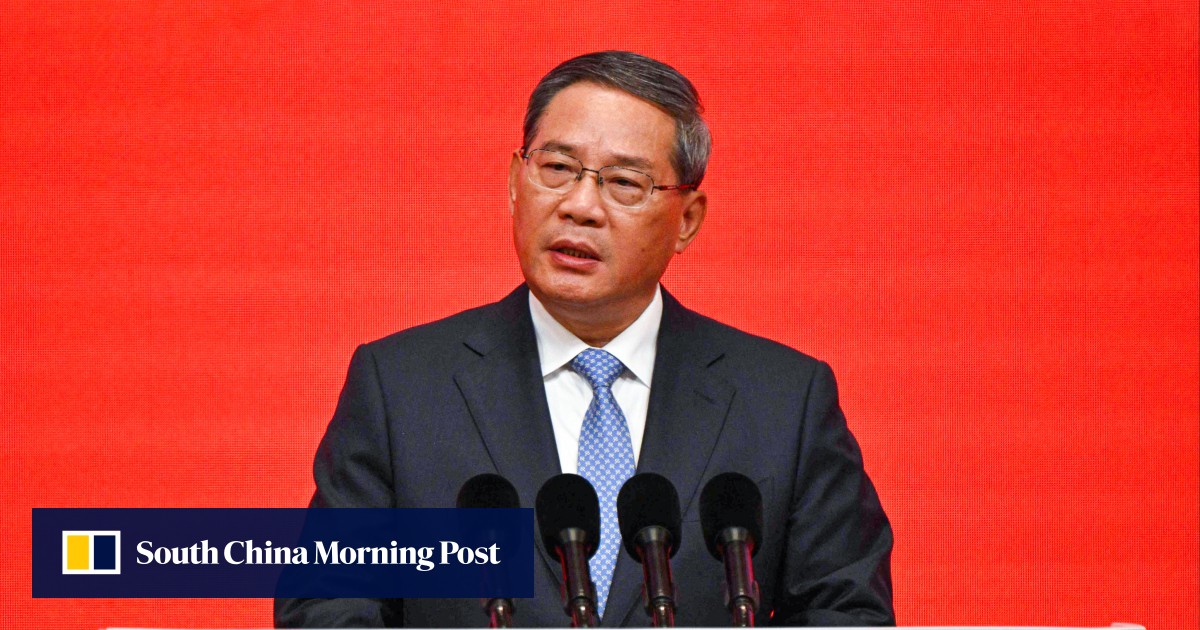
Li said the Chinese government is “carefully” examining some of the issues frequently raised by companies, including market access, public tenders and cross-border data flows.
He also said that Beijing will make government services more efficient and protect the legitimate rights and interests of companies of all kinds.
“We are convinced that a more open China will bring more opportunities for win-win cooperation to the world,” he added.
Migrant workers, not lavish infrastructure, are the key to boosting spending in China
Migrant workers, not lavish infrastructure, are the key to boosting spending in China
Hundreds of millions of Chinese have moved from rural to urban areas, boosting China's economic development over the past decades. But their residence remains tied to rural areas, limiting their ability to access better social welfare services in cities.
Less than half of China's population has permanent residence in urban areas, far lower than the roughly 80 percent rate in advanced economies, Li said.
“The potential to raise China's urbanization rate is still huge,” he said.
“Every percentage point increase in the urbanization rate [in China] It means moving about 14 million rural residents to cities.
How can China's urban residence expansion unleash 2 trillion yuan in spending?
How can China's urban residence expansion unleash 2 trillion yuan in spending?
The two-day China Development Forum brings together businessmen, academics and officials, and is one of the few places where foreign business leaders can interact with Chinese state leaders.
This year's event comes as Beijing redoubles its efforts to revive confidence in the Chinese economy at home and abroad.
President Xi Jinping signaled China's interest in foreign investment and high-tech companies with a trip last week to BASF Shanshan Battery Materials, a Sino-German joint venture that produces lithium battery materials in the country's central Hunan province.
Commerce Minister Wang Wentao also met with a group of top global technology, financial and pharmaceutical executives, including Apple CEO Tim Cook as well as the CEOs of US chip companies Qualcomm and Micron and South Korean semiconductor producer SK Hynix.
During his speech, Li said that the Chinese economy “is off to a good start” this year, citing “rapid” growth in industrial production, overall finance, industrial electricity consumption, goods transportation and travel.
China has set its 2024 growth target at about 5 percent, the same level as last year and in line with market estimates but still widely seen as “ambitious” given the multiple challenges the economy faces.
Lee told global business leaders that the goal took into account the need to boost employment and income and prevent and defuse risks.
“We hope to provide greater certainty and positive energy for the recovery and stability of the global economy,” he said.
China's economic data for the first two months of the year exceeded analysts' expectations, but doubts persist as the country's real estate crisis and local government debt worsen.
Lee was moved to downplay those concerns.
He added: “As for the actual situation on the ground, some of the difficulties and problems are not as serious as some imagine,” noting that the “strict measures” that were taken last year regarding the real estate sector and local government debts achieved “positive results.”
“China's price level is relatively low now and the central government's debt ratio is not high, providing ample room to strengthen macro policies,” Li said.
He said the central government's fiscal measures this year, including 1 trillion yuan (US$138.3 billion) worth of long-term special treasury bonds, “will provide more opportunities for businesses” and that authorities will continue to push for a “steady decline” in GDP. . Financing costs in the country.
“We will also… include non-economic policies in the assessment of the coherence of the overall policy direction to ensure that all policies are aligned and create synergies,” he said.
Xi Jinping's high-tech push steals the spotlight at China's 'Two Sessions'
Xi Jinping's high-tech push steals the spotlight at China's 'Two Sessions'
Pointing to other sources of potential growth, Li said Beijing's push to refurbish large-scale industrial equipment, automobile and home appliance trade will lead to trade opportunities worth trillions of yuan each year.
“China is now building a modern industrial system with advanced manufacturing as the backbone, which also represents an opportunity for the world,” Li said.
Li highlighted the “profound changes” in the international environment, saying that “today's Chinese economy is more integrated with the global economy than ever before.”
“We warmly welcome companies from all over the world to invest and grow their business in China and seize the great opportunities brought by China's continuous development,” Li said.
China eases security checks on cross-border data transfers to help boost economy
China eases security checks on cross-border data transfers to help boost economy
China's high-quality workforce, vast market, cutting-edge infrastructure and manufacturing prowess have made the country attractive to foreign companies, said Evan Greenberg, CEO of Swiss insurance company Chubb and co-chair of the forum.
“China…is a place where competitive multinationals want to do business,” Greenberg said.
He also highlighted the importance of the country's “vibrant and dynamic” private sector in promoting economic growth by generating confidence for investment, business expansion and job creation, which in turn leads to consumer confidence.
“Trust is key,” Greenberg said.
Additional reporting by Bin Jiang

“Web maven. Infuriatingly humble beer geek. Bacon fanatic. Typical creator. Music expert.”





More Stories
Elon Musk Denies Reports He’s Directing $45 Million to Trump PAC
This extra-long yellow Cadillac electric sedan has a fridge in the back seat.
CrowdStrike shares fall as IT disruption continues